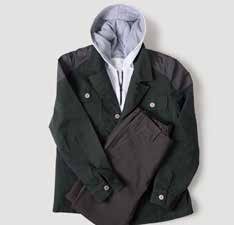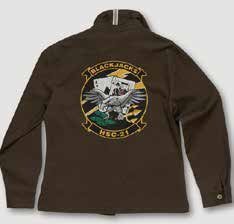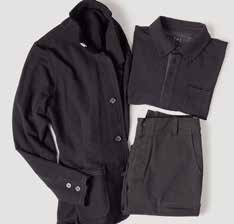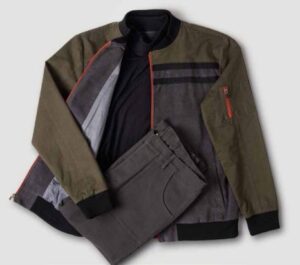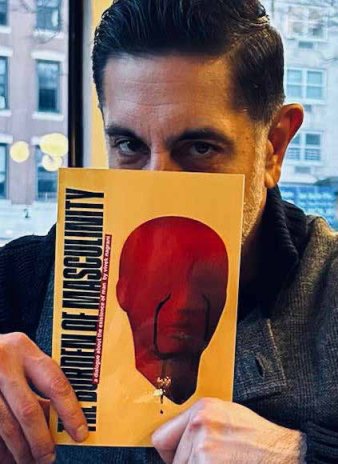
Vivek Nagrani A Journey from Socks to Sustainable Luxury Fashion
September 1, 2025By ROBERT WOMACK
FROM HOLLYWOOD TO ASIA
Meeting Vivek Nagrani at an exclusive chateau on the picturesque island of Koh Samui, Thailand, was an enriching experience. Amidst the celebration of a friend’s birthday, I sat down with the talented clothing designer to delve into his fascinating journey in the world of fashion. However first, it is essential to understand the beginnings that shaped his career.
Vivek was born in India, his family migrated to California during his childhood. Initially guided by the aspirations of his father, he pursued studies aimed at becoming a doctor. Nevertheless, Vivek’s heart lay in fashion. After earning a bachelor’s degree in business administration and entrepreneurship, he dabbled in various ventures before settling down in New York.
His breakout moment arrived rather unassumingly through an everyday item, socks. Vivek ingeniously crafted a premium line of men’s socks that paid homage to timeless ideals. His creations quickly caught the attention of prominent figures, including former President George Bush and filmmaker Spike Lee, who proudly donned them.
What distinguishes Nagrani’s approach is its authenticity. He emphasizes passion above all, endorsing sustainable manufacturing practices while aiming to uplift the human condition through his work.
Following the success of VK Nagrani’s socks, Vivek expanded his brand into a comprehensive clothing collection. By 2006, he established a storefront in New York. Certainly, a space that, from the outside, seemed modest, marked only by a doorbell. However, stepping inside revealed a transformative shopping experience, where customers felt more like friends than mere clients. Unfortunately, the pandemic wave of 2019 severely impacted the business, ultimately leading to its closure.
In response to this setback, Vivek embraced opportunity, relocating to Barbados island where he initiated a successful food cart venture named “Fire Byrd.” Incidentally, once the pandemic settled, he returned to New York to launch a new clothing line, Article3, while simultaneously penning a thought-provoking book, “The Burden of Masculinity.” In this compelling work, Vivek reflects on the evolving definitions of masculinity, arguing that true masculinity has been overshadowed by contemporary interpretations. He notably parallels this to the dichotomy of Bruce Wayne and his alter-ego, Batman.
Vivek Nagrani envisions a personalized consumer experience rooted in quality. He embodies values of passion, masculinity, familial commitment, and sustainable sourcing that aim to give back to the community. His commitment transcends mere fashion; he believes in enhancing lifestyles through intricate details that range from socks to outerwear, each piece resonating with authenticity.
VK Nagrani stands as a visionary in menswear, passionately dedicated to crafting artisan products with a purpose. This unique ideology and devotion place Vivek, and his label, at the forefront of redefining luxury in fashion. For those interested, more information can be found at [VK Nagrani’s official website] (http://www. vknagrani.com) or (http://www.article3nyc.com).
Vivek Nagrani interview: Robert: You attended the University of Southern California and the University of California at Irvine. Were those institutions contributors to your success in your clothing business ventures or not at all?
Vivek: Both schools influenced my thinking and way of being. College shaped my personality which is a key component to the way I design clothing. The collection and brand are an authentic expression of who I am as a person, what I believe in and how I think men should dress.
Robert: I read where you had a successful food cart business in Barbados. Was that small business fun or demanding more time than it was worth? Moreover, what caused you to stop doing that to move to New York and get into fashion?
Vivek: Working as street food cook was one of the best experiences of my life. It gave me an opportunity to push my creativity in a completely new direction. It was physically demanding but having the opportunity to cook for people was extremely rewarding. I had to leave because my passion has always been designing clothing. And to be honest, I had a chance to become friends with real chefs and I am not ashamed to say, I am not in their league. Robert: You started out with designer socks. They must have been not only unique but comfortable. They obviously caught the eye of certain political leaders, like President George W. Bush. How did they even find you? Does he and other celebrities still buy socks from you? Vivek: The socks were so far ahead of their time in both design and construction. Until today, I have yet to find a sock that is as well made as what we created. This is only because I care about making each piece of clothing the best I possibly can.
President George Bush was introduced to our socks by a gentleman named Michael Wiesenthal who had a store in Houston, Texas. I am not driven by celebrity, but I hear a lot them still wear the product.
Robert: You then went into designer suits. Did you design them yourself? Or leave them to the whim of the manufacturer of them? Also, are these suits complete with shirt, ties, and accessories?
Vivek: That is a funny one. There is a huge difference between a designer and a tailor or manufacturer. Tailors are stewards of the art, they cannot design. I design everything to have a purpose and to function in the way I see clothing should. Robert: What do you feel makes your suits special above some of the name brands out in the industry?
Vivek: At this moment, we are making our tailored clothing in New York City using all American made materials and trims. This is a very different approach. The suits that I’m designing now have a very unique American like vibe to them. Simple, but junctional and efficient.
Robert: Where are your other haberdasheries made? Are they designed and made here in the USA or are they made in other countries?
Vivek: Our primary collection is ready to wear refined casual clothing is all made in Peru. Since most of the pieces are cotton based, Peru’s Pima cotton is the gold standard. Tailored clothing, suits and coats are made in the USA.
Robert: You had a place where you sell out of a store front, called the “Lodge” I believe. Your store front, from what I have come to understand had a Batman theme. What is the appeal to you for the character, Bruce Wayne. Was it his wealth, the fancy suits he wears or is it the Batman that interests you? If it is the Batman, what about that vigilante character is there that strikes your fancy?
Vivek: Bruce Wayne intrigues me because his disposition allows him to live a life of leisure, yet he takes responsibility to help make the world better. This is what masculinity is about; it is the responsibility of men to move the world forward.
Robert: What prompted you to author the Book, “Burden of Masculinity”?
Vivek: Masculinity is in peril. It is a discussion we need to have because today’s men are not really aware of what it means to achieve the masculine state of mind.
Robert: You have generously donated a percentage of your profits to military veterans. Being a USA Veteran myself, I applaud your kindness but wonder why you chose that charity for your philanthropic undertaking?
Vivek: It is in a way penance, for not serving my country. It’s now my way of serving. I have a great deal of appreciation and respect for the men and women who serve and have served. We get to enjoy a way of life in America that is unlike anywhere in the world. I salute the men and women who have sacrificed so much for us and I feel it is my responsibility.
Robert: What do your parents do for a living or are they retired and enjoying the fruits of their labor? Vivek: Father is a physician, still practicing and mother was the CEO of our family.
Robert: How do you feel Ralf Lauren, Men’s Warehouse, Macys, and others compare with your designs in style and quality? Or am I trying to compare Bruce Wayne’s suits with the Joker’s?
Vivek: Hahaha. Look, the mentioned names are businesses, they look at clothing very differently than I do. To me, each piece is set, and it must bring the person who owns it a sense of joy.
Robert: Is there one point you would like to get across to the readers of this interview? Or perhaps, advice to someone starting out in a clothing industry?
Vivek: Whatever you choose to pursue in life, do the best you can and never stop trying to be better today than you were yesterday. Don’t listen to the critics, the naysayers, follow that voice that sings within you.
